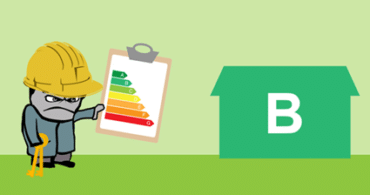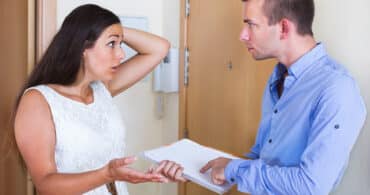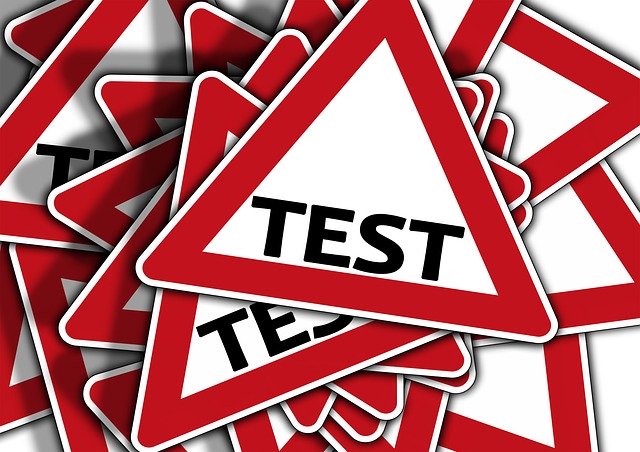Repairs and Safety Checks During COVID-19: A Guide for Landlords
In this latest instalment of our coronavirus series for landlords, we’re looking at how to approach the various legally required safety checks during COVID-19, the scenarios in which checks may not be possible, and how to handle situations where tenants are shielding or self-isolating.
The COVID-19 pandemic may have changed many aspects of property services management, but the fact remains that landlords and property managers still have a legal duty of care under various legislation to ensure their tenants are provided with a safe place in which to live. This means that regulatory safety checks must still go ahead wherever possible.
In this latest instalment of our coronavirus series for landlords, we’re looking at how to approach the various safety checks during COVID-19, the scenarios in which checks may not be possible, and how to handle situations where tenants are shielding or self-isolating.
The challenges of dealing with safety checks during COVID-19
The Homes (Fitness for Human Habitation) Act 2018 requires that landlords ensure all rented accommodation is fit for human habitation. This is just one piece of legislation that property services managers and landlords must abide by. Others deal more specifically with the individual areas of property safety, namely gas, electrics and fire, all of which place duties on landlords to carry out safety checks.
Due to the coronavirus pandemic, landlords are naturally facing challenges when it comes to arranging all the required safety checks, especially in situations where tenants are self-isolating. The Health and Safety Executive (HSE) advises that landlords should balance the risk to safety of the household and the public presented by the gas and electrical systems and potential fire hazards, against the risk to tenants’ health from coronavirus.
There is no reason to suspend safety checks during the pandemic unless there is good reason. Each situation should be assessed for risk on an individual basis.
Current government guidance allows work to be carried out in people’s homes, provided that guidance on staying alert and safe social distancing is followed. The official resource, working safely during coronavirus – other people’s homes provides guidance for engineers and their employees on working in peoples’ homes.
Property services management companies are requesting that all contractors, including engineers, cleaners and property inspectors, provide a copy of their own COVID-19 safety policy and risk assessment. It is advisable for landlords to do the same so there is evidence that the right steps have been taken to ensure the safety of their tenants.
What should landlords do if it is not possible to carry out safety checks?
The government is encouraging local authorities to adopt a common-sense approach to enforcement during the pandemic, although this does not mean landlords are allowed to ignore their responsibilities regarding safety checks.
If safety checks cannot be carried out, it will usually be enough to demonstrate that reasonable steps were taken to do so. If access to a property is not possible because tenants are self-isolating, or if registered engineers are not available, landlords must demonstrate that reasonable steps were taken to stay in line with the law.
This should include records of communications with tenants; proof that engineers attempted to gain access, and evidence of efforts made to secure engineers. Where regular engineers are not available, reasonable attempts should be made to obtain an alternative. Landlords may also wish to provide other evidence that the installation, appliance or flue is in a good condition whilst they attempt to arrange works.
Where it has not been possible to arrange a safety check within the required time period, every effort must be made to do so as soon as it becomes possible.
Dealing with gas safety checks
Under the Gas Safety (Installation and Use) Regulations 1998, all gas appliances in privately rented properties must be checked annually by a Gas Safe registered engineer to ensure they are safe. A record of each safety check must be kept.
During the COVID-19 pandemic, it is important to strike a balance between ensuring people, including those who are vulnerable, are protected from the potentially fatal risks associated with carbon monoxide exposure or gas explosion, whilst doing whatever is possible to protect them from COVID-19.
The Gas Safe Register website provides useful and very comprehensive guidance for landlords, including a series of scenarios designed to help landlords understand what may be considered reasonable steps to take in demonstrating compliance with their responsibilities during the pandemic.
How to handle electrical safety checks
The Electrical Safety Standards in the Private Rented Sector (England) Regulations 2020 require residential landlords in England to maintain their properties to the specified standards, and to provide evidence that they are compliant. The Regulations apply to all new residential tenancies in England from 1 July 2020, and will apply to existing tenancies from 1 April 2021.
Under the legislation, property services managers and landlords must ensure their privately rented properties meet the 18th Edition of the Wiring Regulations (British Standard 7671), and must be able to produce an Electrical Installation Condition Report (EICR) to prove that all fixed electrical appliances have been inspected and tested as safe by a qualified and competent person. Inspections must be carried out at least every five years.
This is a relatively new requirement for landlords but one that needs to be adhered to, despite the current pandemic situation. Again, as with the gas safety checks, it is all about striking a balance between the safety of the tenants in terms of the risks associated with unsafe electrical appliances, and protecting them from coronavirus.
The importance of maintaining interim property inspections
Interim or routine property inspections form a very important element of property services. They are essential for highlighting any developing maintenance or safety related issues, allowing them to be remedied before they turn into major problems.
The property inspectors who carry out the routine visits should be trained to be familiar with all the safety legislation relating to the private rented sector. They are experienced in spotting safety issues, including hazards such as missing smoke alarms or carbon monoxide detectors; potential problems with appliances, and fire safety risks.
During the coronavirus pandemic, property inspectors are allowed to carry out mid-term visits, as long as they follow social distancing and hygiene protocol in line with government advice. If tenants are self-isolating, then interim inspections should be re-scheduled, but definitely not cancelled in their entirety.
Expert guidance on property services management during COVID-19
There is a lot to take in when considering how to meet your responsibilities as a landlord during the COVID-19 pandemic. If you could benefit from some professional guidance, or you feel it’s time to hand over to an experienced property services expert who you can depend on to take care of every aspect of running your rental portfolio, talk to homes2let.
When it comes to property management, London based homes2let provides a fully comprehensive package. In addition, the homes2let rent guarantee scheme secures rental payments, even during vacant periods. Why not get in touch to learn how we can smooth your life as a landlord?
Related Insights

EPC Revisions: Unravelling Implications for Homeowners and Landlords
The Aftermath of EPC Shifts in Property Market The recent modification in energy efficiency standards by Rishi Sunak may lead the property sector to uncharted waters unless a clearer perspective emerges. Buy-To-Let landlords, who own multiple properties find themselves at a crossroads due to these changes.

Government Reveals Plans for Evictions Ban Wind-Down
The government has announced plans to wind down the current evictions ban, meaning that landlords finally have some clarity on moving forward with evictions that are currently on hold, and have been for some time. Bailiffs will as a result be able to reinstate their roles from 1st June 2021.

The Biggest Change In Renters’ Law In A Generation
The new Renters Reform Bill changes the balance of power in favour of tenants, because it will increase their security and peace of mind. The new law could make it difficult and costly for landlords to evict tenants or sell their properties.







